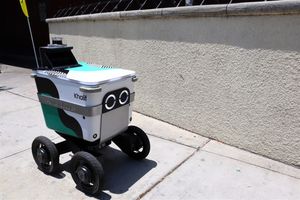Continuous Positive Airway Pressure (CPAP) machines have long been considered the standard of care for obstructive sleep apnea, but a growing number of patients are unable or unwilling to continue with CPAP therapy. Data released earlier this year reinforced a trend that has been observed for decades: most patients who begin CPAP treatment stop using the machines within the first year. As this issue of non-adherence persists in 2025, more individuals in Columbus and across the country are looking toward alternative treatments such as oral appliance therapy (OAT), an FDA-cleared solution for patients with mild to moderate obstructive sleep apnea. Sleep Better Columbus has been at the forefront of providing this treatment option, offering custom-fitted oral devices to those seeking an alternative to CPAP.
Oral appliance therapy works by repositioning the jaw and tongue during sleep to keep the airway open, reducing apneic events and improving breathing throughout the night. Unlike CPAP, which requires a mask, tubing, and continuous air pressure, these devices are compact, portable, and non-invasive. For patients in Columbus who have struggled with CPAP use, the option of oral appliance therapy (OAT) has become increasingly attractive. Medical professionals in the field have noted that many patients report better sleep quality, improved compliance, and greater convenience with oral devices compared to CPAP therapy.
Dr. Mark Levy, from Sleep Better Columbus located in Columbus, Ohio, emphasized the importance of finding a treatment option that patients will actually use. “The most effective therapy is the one a patient can tolerate every night,” said Dr. Levy. “We have seen far too many individuals abandon CPAP because of discomfort, noise, or inconvenience. Oral appliance therapy provides a medically sound alternative that patients are more likely to stick with, which means better long-term outcomes for managing sleep apnea.” Dr. Levy added that while CPAP remains highly effective for those who can tolerate it, the reality is that non-compliance undermines its benefits, leaving untreated sleep apnea as a serious risk.
The health consequences of untreated obstructive sleep apnea are well-documented and remain a pressing concern in 2025. Patients who discontinue CPAP without exploring alternatives often experience persistent symptoms such as loud snoring, morning headaches, and daytime fatigue. More concerning are the long-term health risks, which include an increased likelihood of cardiovascular disease, hypertension, stroke, and metabolic disorders. According to Dr. Levy, failing to address sleep apnea is not only detrimental to personal health but also contributes to public safety risks such as drowsy driving. “Sleep apnea is not just about poor sleep,” Dr. Levy said. “It is about reducing the risk of serious, life-threatening health complications that can develop when the disorder is left untreated.”
Custom-fitted oral appliances, used for sleep apnea treatment at Sleep Better Columbus, are designed to meet the unique anatomy of each patient, ensuring both comfort and effectiveness. These devices are discreet, silent, and easy to transport, making them particularly appealing for those who travel frequently or share a bed with a partner. Many patients also appreciate that the therapy does not require electricity or equipment maintenance, unlike CPAP systems. Insurance coverage is often available for qualifying patients, which has further increased accessibility to this form of treatment.
Beyond individual convenience, the growing demand for oral appliance therapy represents a broader shift in how sleep apnea care is delivered. As Dr. Levy explained, “We are seeing more physicians, dentists, and sleep specialists working collaboratively to ensure patients receive the treatment that best fits their lifestyle and medical needs. The recognition of oral appliance therapy as a legitimate and effective option has changed the way sleep medicine is practiced, and it offers new hope for those who thought they had no other choice.” This interdisciplinary approach underscores the fact that effective sleep apnea management requires flexibility and patient-centered care.
While oral appliance therapy is not intended for every patient, it has proven especially beneficial for those diagnosed with mild to moderate sleep apnea who cannot tolerate CPAP. Levy noted that comprehensive evaluations are necessary to determine eligibility, and follow-up care remains essential to monitor results and ensure long-term effectiveness. In many cases, patients who switch to oral appliances report not only better adherence but also improvements in their overall health and daily functioning. For individuals in Columbus struggling with CPAP intolerance, Sleep Better Columbus emphasizes that untreated sleep apnea should not be ignored.
https://youtu.be/L24LcQoZbfg
As the demand for alternatives to CPAP therapy continues to grow in 2025, Sleep Better Columbus remains committed to providing patients with access to safe, effective, and individualized care. For more information about available sleep apnea treatment options, please visit https://sleepbettercolumbus.com/sleep-apnea-treatment/
###
For more information about Sleep Better Columbus, contact the company here:
Sleep Better Columbus
Dr. Mark Levy
+16143627292
cynthia@sleepbettercolumbus.com
1335 Dublin Rd #100b, Columbus OH, 4321






